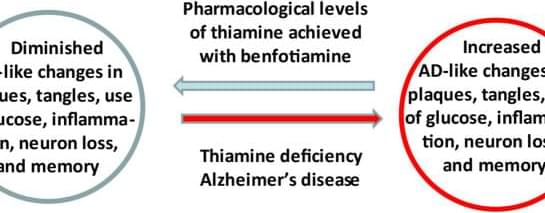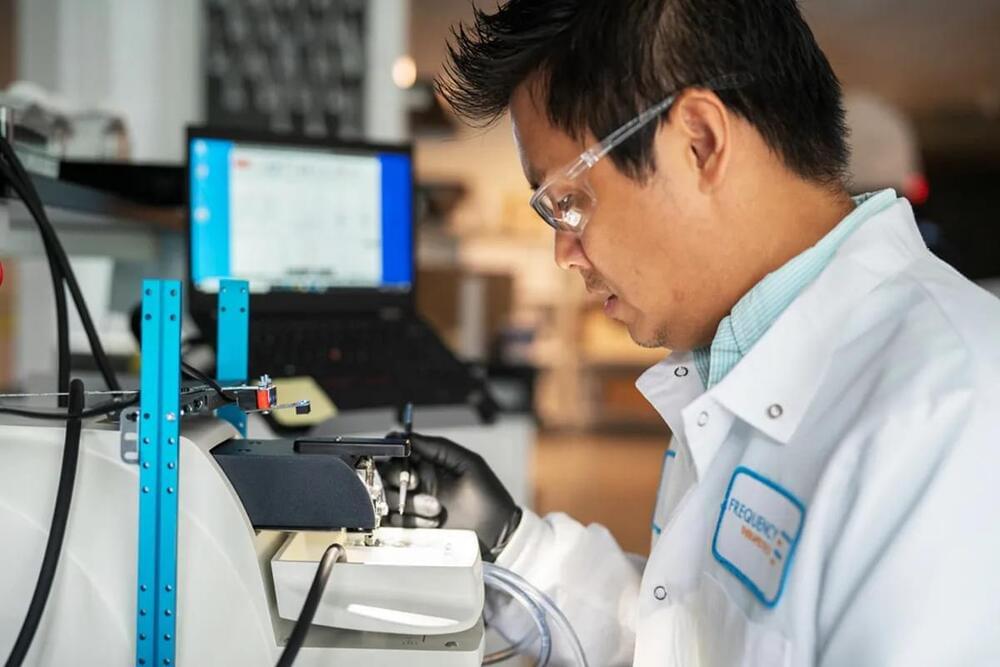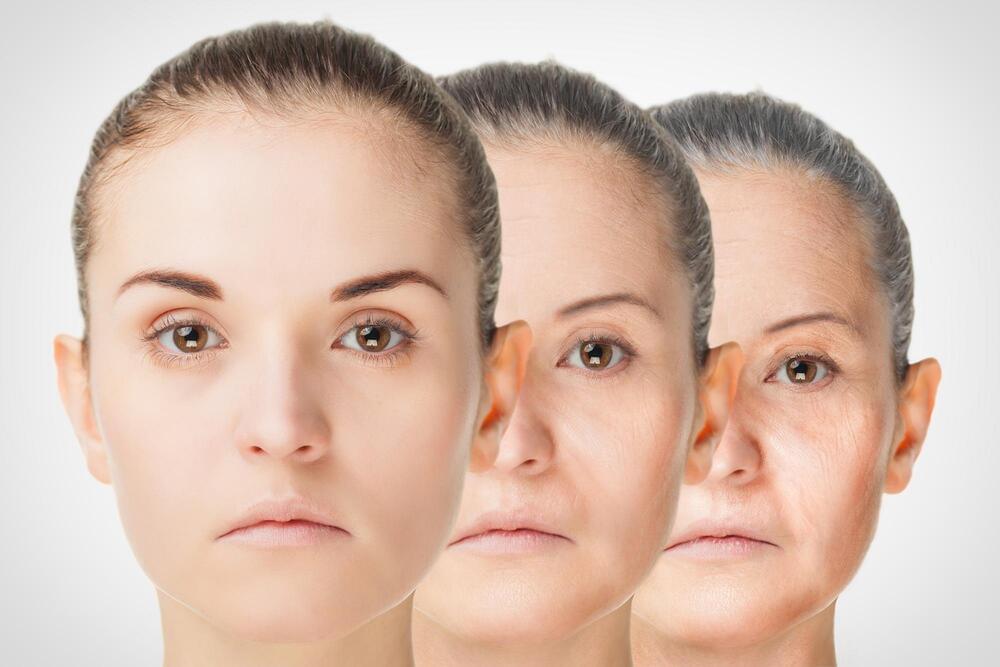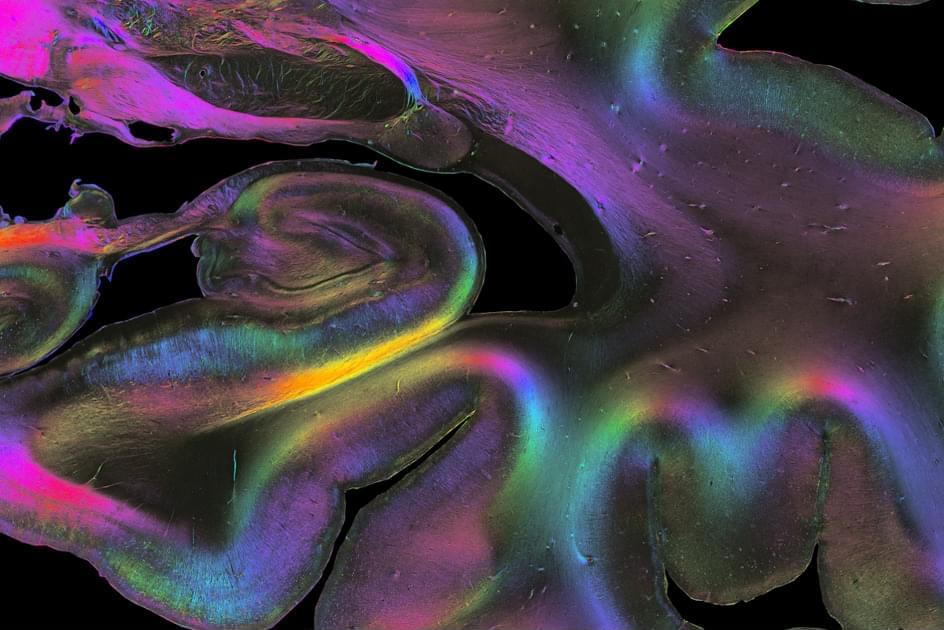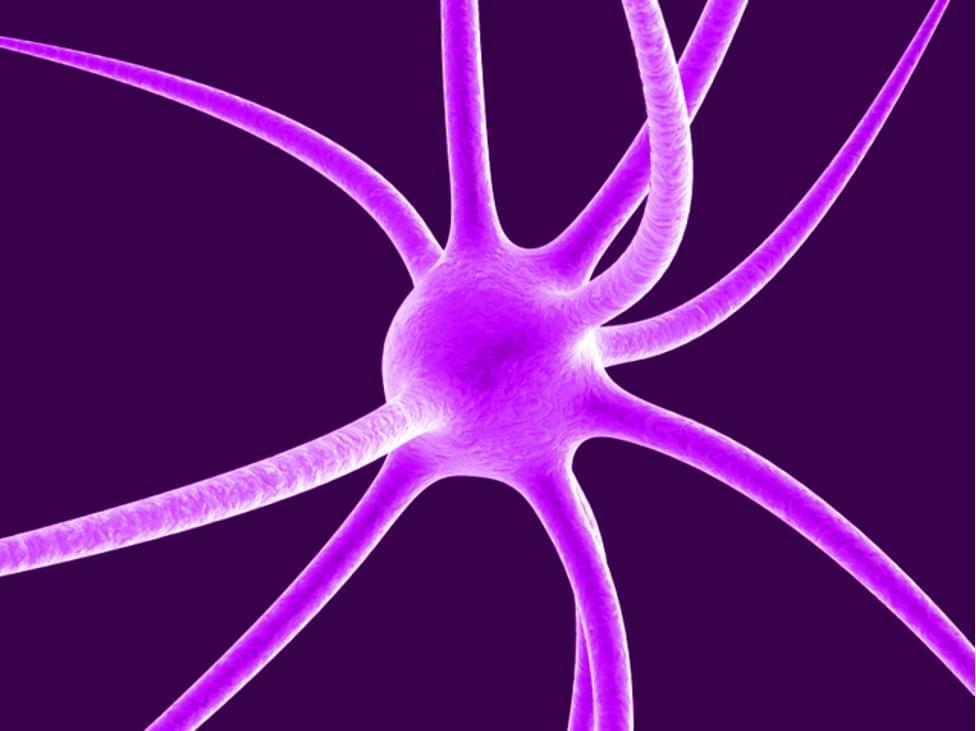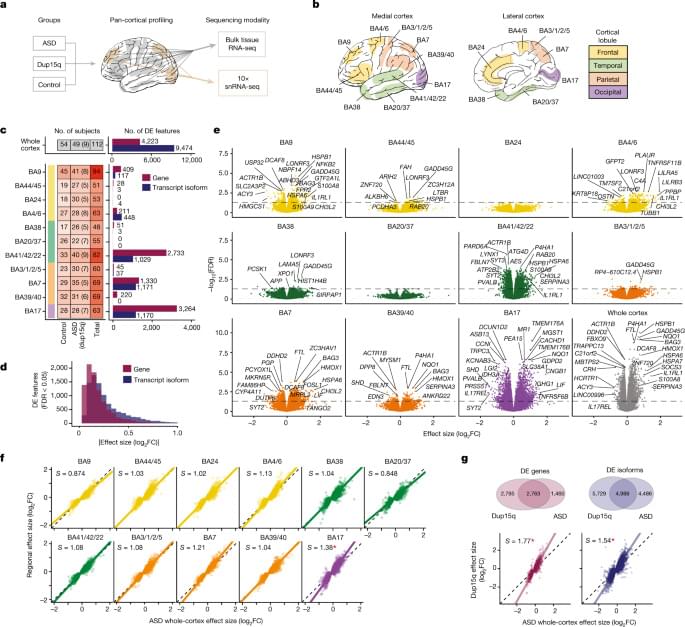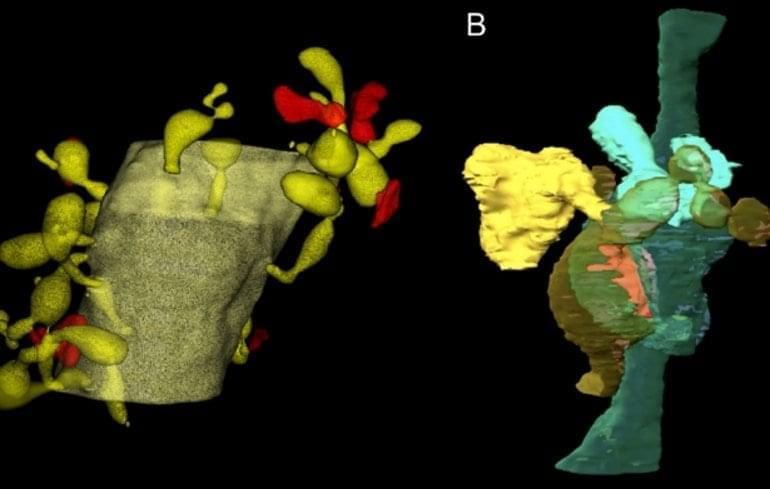Archive for the ‘neuroscience’ category: Page 413
Nov 5, 2022
Supported Cell Therapy for Parkinson’s Disease is Entering Clinical Trials
Posted by Kelvin Dafiaghor in categories: biotech/medical, neuroscience
A major hallmark of Parkinson’s disease is the loss of dopamine-producing neurons in the brain, which in turn causes patients to lose motor control abilities. NYSCF – Robertson Stem Cell Investigator Alumna Malin Parmar, PhD, of Lund University, has spent a decade developing a cell therapy to replace these cells, and this revolutionary treatment (called ‘STEM-PD’) has just received approval for a Phase I/IIa clinical trial in Sweden.
“We are excited and looking forward to this clinical study of STEM-PD, hoping that it could potentially help reduce the significant burden of Parkinson’s disease. This has been a massive team effort for over a decade, and the regulatory approval is a major and important milestone,” said Dr. Parmar, who is a Professor of Developmental and Regenerative Neurobiology at Lund, in a statement.
Dr. Parmar’s innovative work towards a Parkinson’s cell therapy earned her the NYSCF – Robertson Stem Cell Investigator Award in 2016, which provided support for her lab’s research until 2021, including her work on STEM-PD.
Nov 5, 2022
Ken Hayworth’s personal response to MIT Technology Review article
Posted by Dan Breeden in category: neuroscience
This is my rebuttal to the recent MIT Technology Review article by Michael Hendricks. The views expressed here are mine alone and should not be taken as an official statement from the BPF which is an organization with a diverse range of opinions but a common goal to advocate more scientific research into brain preservation…
Nov 5, 2022
The next wave of regenerative medicine
Posted by Kelvin Dafiaghor in categories: biotech/medical, life extension, neuroscience
Regenerative medicine company Frequency Therapeutics is developing new drugs that activate our innate abilities to restore function and reverse degenerative diseases. The company is working on small molecules that selectively activate progenitor cells already present within our bodies to create healthy, functional tissues. Frequency’s initial focus is on hearing loss and multiple sclerosis, and the company has just completed enrolment of a Phase 2b trial in adults with acquired sensorineural hearing loss (SNHL).
Longevity. Technology: Frequency is focused on progenitor cells, which are like stem cells but can only make cells that belong to the same tissue or organ. While progenitor cells remain active in some of our organs and tissues, they can become dormant in others. Frequency’s small molecules are designed to selectively target and induce dormant progenitor cells to create specific cell types to restore tissue structure and function. We caught up with Frequency’s Chief Scientific Officer Dr Chris Loose to learn more.
Nasdaq-listed Frequency was founded in 2014, licensing technology developed by professors Robert Langer from MIT and Jeffrey Karp from Harvard Medical School.
Nov 5, 2022
“Unexpected” — Scientists Discover an Anti-Aging Mechanism
Posted by Quinn Sena in categories: biotech/medical, life extension, neuroscience
A multinational team headed by University College London scientists has discovered a new mechanism that slows down and maybe even prevents the normal aging of immune cells, one of the nine “hallmarks of aging.”
The discovery in-vitro (cells) and validated in mice was “unexpected,” according to the researchers, who believe harnessing the mechanism might extend the life of the immune system, enabling people to live healthier and longer lives, and would also have therapeutic use for diseases such as cancer and dementia. Their findings were recently published in the journal Nature Cell Biology.
Explaining the study, lead author, Dr. Alessio Lanna, Honorary Professor at UCL Division of Medicine, said: Immune cells are on constant high-alert, always ready to fight pathogens. To be effective they also must persist for decades in the body – but the strategies employed to execute this life-long protection are largely unknown.
Nov 5, 2022
This Implant Turns Brain Waves Into Words
Posted by Dan Breeden in categories: biotech/medical, computing, neuroscience
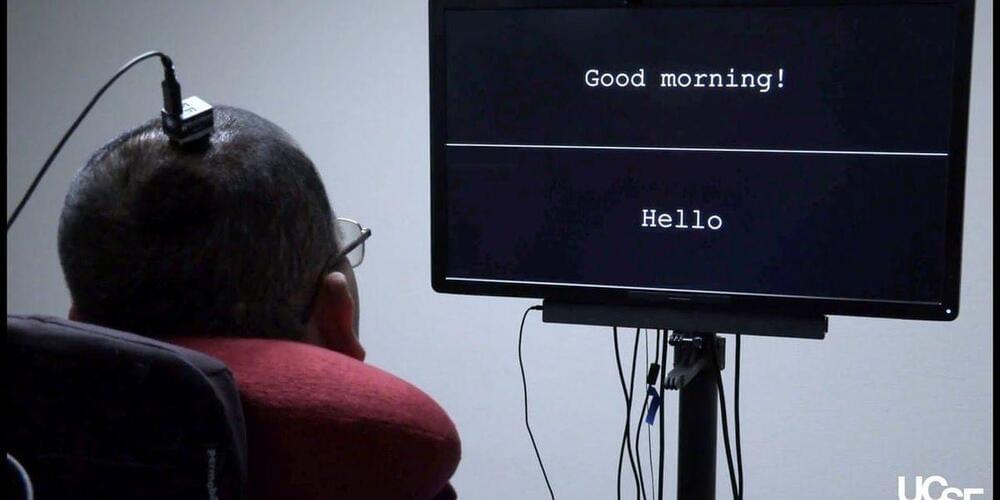
A paralyzed man who hasn’t spoken in 15 years uses a brain-computer interface that decodes his intended speech, one word at a time.
Nov 4, 2022
A combination of micro and macro methods sheds new light on how different brain regions are connected
Posted by Dan Kummer in categories: biotech/medical, neuroscience
“It is not enough to study brain connectivity with one single method, or even two,” says HBP Scientific Director and author of the Science article Katrin Amunts, who leads the Institute of Neuroscience and Medicine (INM-1) at Forschungszentrum Jülich and the C. & O. Vogt Institute of Brain Research at the University Hospital Düsseldorf. “The connectome is nested at multiple levels. To understand its structure, we need to look at several spatial scales at once by combining different experimental methods in a multi-scale approach and by integrating the obtained data into multilevel atlases such as the Julich Brain Atlas that we have developed.”
Markus Axer from Forschungszentrum Jülich and the Physics Department of the University of Wuppertal, who is the first author of the Science article, has together with his team at INM-1 developed a unique method called 3D Polarised Light Imaging (3D-PLI) to visualise nerve fibres at microscopic resolution. They trace the three-dimensional courses of fibres across serial brain sections with the aim of developing a 3D fibre atlas of the entire human brain.
Together with other HBP researchers from Neurospin in France and the University of Florence in Italy, Axer and his team have recently imaged the same tissue block from a human hippocampus using several different methods: anatomical and diffusion magnetic resonance imaging (aMRI and dMRI), two-photon fluorescence microscopy (TPFM) and 3D-PLI, respectively.
Nov 4, 2022
New large-scale virtual model of cortex highly successful in solving visual tasks
Posted by Dan Kummer in categories: biological, neuroscience, robotics/AI
HBP researchers have trained a large-scale model of the primary visual cortex of the mouse to solve visual tasks in a highly robust way. The model provides the basis for a new generation of neural network models. Due to their versatility and energy-efficient processing, these models can contribute to advances in neuromorphic computing.
Modeling the brain can have a massive impact on artificial intelligence (AI): since the brain processes images in a much more energy-efficient way than artificial networks, scientists take inspiration from neuroscience to create neural networks that function similarly to the biological ones to significantly save energy.
In that sense, brain-inspired neural networks are likely to have an impact on future technology, by serving as blueprints for visual processing in more energy-efficient neuromorphic hardware. Now, a study by Human Brain Project (HBP) researchers from the Graz University of Technology (Austria) showed how a large data-based model can reproduce a number of the brain’s visual processing capabilities in a versatile and accurate way. The results were published in the journal Science Advances.
Nov 4, 2022
Broad transcriptomic dysregulation occurs across the cerebral cortex in ASD
Posted by Saúl Morales Rodriguéz in category: neuroscience
ARI gene groups (ARI downregulated genes, those highly expressed in BA17 and BA39/40 relative to other regions in controls; ARI upregulated genes, those expressed at low level in BA17 and BA39/40 relative to other regions in controls) were created through taking the union (without duplicates) across all ten identified ASD-attenuated regional comparisons, and sorting genes into the two groups based on gene-expression profiles across regions. The details of this process are described in the Supplementary Methods, along with functional annotation procedures.
Standard workflows using WGCNA17 were followed as previously described in Parikshak et al.5 and Gandal et al.1 (with minor modifications) to identify gene and transcript co-expression modules. Details regarding network formation, module identification, and module functional characterization are described in the Supplementary Methods.
Frozen brain samples were placed on dry ice in a dehydrated dissection chamber to reduce degradation effects from sample thawing and/or humidity. Approximately 50 mg of cortex was sectioned, ensuring specific grey matter–white matter boundary. The tissue section was homogenized in RNase-free conditions with a light detergent briefly on ice using a dounce homogenizer, filtered through a 40-μM filter and centrifuged at 1,000 g for 8 min at 4 °C. The pelleted nuclei were then filtered through a two-part micro gradient (30%/50%) for 20 min at 4 °C. Clean nuclei were pelleted away from debris. The nuclei were washed two more times with PBS/1%BSA/RNase and spun down at 500 g for 5 min. Cells were inspected for quality (shape, colour and membrane integrity) and counted on a Countess II instrument. They were then loaded onto the 10X Genomics platform to isolate single nuclei and generate libraries for RNA sequencing on the NovaS4 or NovaS2 Illumina machines.
Nov 3, 2022
Glial Cells Eating of Synapses May Enhance Learning and Memory
Posted by Dan Breeden in categories: food, neuroscience
Summary: Bergmann glial cell synaptic engulfing in the cerebellum was enhanced during motor learning in mice.
Source: Tohoku University.
Tohoku University researchers have shown that Bergmann glial cells, astrocyte-like cells in the cerebellum, ‘eat’ their neighboring neuronal elements within healthy living brain tissue.
